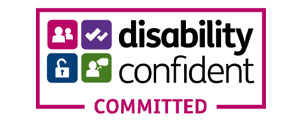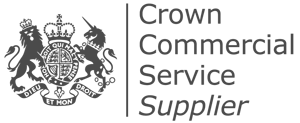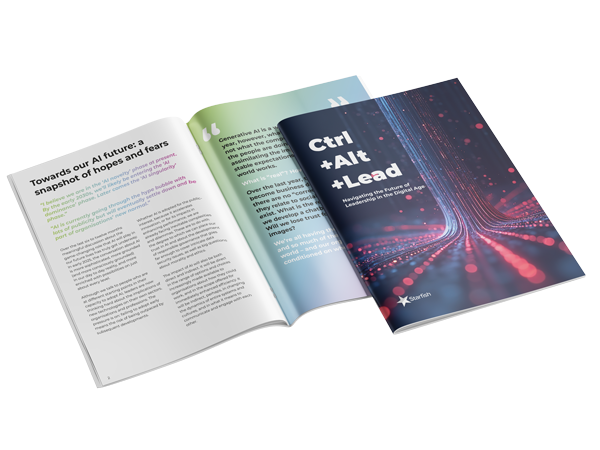What boardroom skills are in high demand?
When applying for board positions, non-executive directors are expected to bring strategic and leadership skills to the table. In today’s challenging business climate, soft skills are also in high demand.
Having a wealth of experience to bring to a non-executive board position is a clear advantage. Application processes for board jobs are competitive, and the time to put your case forward is limited.
So, how do you prepare yourself when applying for non-executive directorships?
“Understand what the gap is that the organisation is trying to fill and make sure you are clear and confident about what you can offer.”
What is your signature skill?
Across the globe, companies are experiencing extensive regulatory, technological and financial challenges. Managing business through these challenges requires highly skilled and experienced board directors.
“Most boards look for: knowledge, governance expertise, networks, and a connection with audiences,” says Taylor.
“You don’t have to bring all four things, though, so [ask yourself] what’s your signature contribution?”
Board jobs in the UK
Highly valued non-executive directors are well-versed in emotional intelligence – they can quickly grasp other people’s characteristics and agendas.
“Understanding the nuance of board roles is also important,” says Taylor. “Consider where the organisation is trying to get to and what you can bring to the party.
“We are seeing more and more people from all sectors looking for more purposeful ways of using their skills and who want to make a positive contribution to society.
“Always remember: this is your time, so don’t forget to tell the organisation what the role would give you in return.”
What professional disciplines, or hard skills, are currently in demand on UK boards?
“The pandemic recovery period means that effective non-executive leaders are in demand more than ever before,” says Taylor.
“We are seeing increasing numbers of non-executive board members being sought for organisations who need to rebuild or refocus their strategy.
“We have seen a strong trend in boards looking for people with digital expertise and backgrounds in customer service and organisational or cultural change.
Those with financial skills and profit-making skills are now high in demand.
“People who can help increase income or support financial management are also towards the top of the list, as are people who can bring insight into, and connection with, customers and audiences.
However, it isn’t all about increasing the bottom line and opening the right doors.
“One of the shifts we are seeing is a marked move away from focusing too much on professional disciplines. Organisations in all sectors are much more aware of their diversity now than they were before 2020. Creating strong, versatile and authentically diverse teams is now a consistent theme.”
What soft skills are in demand?
An effective board member is hard to define, mainly due to their soft skills, such as the ability to listen and knowing when to speak.
“It’s hard to tell a great non-executive on paper because so much of the role is about how people operate and not what they have done,” says Taylor.
“Great board members are people who understand how to deploy their expertise in a way that has an impact in a non-executive board setting.”
Self-awareness is a powerful skill
“The skills that make the difference are the capacity for self-reflection, so people with insight and self-awareness, also diplomacy and listening skills,” says Taylor.
“Increasingly, people are being expected to bring all their experiences into the board room, not just their professional accomplishments. Sound judgement is key to doing this well and to understand how you can add value.”
When it comes to the interview
This is your time to reflect and prepare. The role you are applying for needs to be fulfilling and worthwhile for you as well.
Be clear. Tell the organisation what you can bring to the table to help it reach its goals and why it matters to you.
This article by Juliet Taylor was written in partnership with the Corporate Governance Institute
Top Talent: Regeneration and Growth
The growth and infrastructure agenda remains central to the government’s mission, and local authorities across the country are key drivers.
Mastering the Chair and Chief Executive Partnership: Insights from Our Latest Webinar
We recently hosted the second session in our Aspiring Chief Executives webinar series, focusing on a crucial theme for any leader entering the charity sector: Mastering the Chair and Chief Partnership. The session, led by our own Louise Beales, Prinicpal Consultant, and special guest Ciara Eastell, an experienced charity CEO, Chair, and coach, both provided a wealth of practical advice for those stepping into executive roles, especially within non-profit and charitable organisations.
Mastering the Chair/CEO Partnership: Your First 100 Days and Beyond – A Starfish Search Webinar
Starfish is dedicated to supporting leaders at every stage of their journey and we know that one of the hardest steps is how to go about finding the right opportunity, and what to expect when you get your first chief executive role. We are pleased to be running a webinar for our new Aspiring Chief Executives programme.
ACCREDITATIONS


ESPO is a public sector owned professional buying organisation (PBO), specialising in providing a wide range of goods and services to the public sector for over 40 years. Starfish Search has been awarded a place on ESPO’s Strategic HR Services framework (3S). Services we offer under the framework include: Lot 1, Executive and Managerial Interim Recruitment Lot 2, Executive and Managerial Permanent Recruitment.


Starfish are proud to be certified Disability Confident Committed. This scheme provides employers with the knowledge, skills and confidence needed to attract, recruit, retain and develop disabled people in the workplace.


Crown Commercial Service supports the public sector to achieve maximum commercial value when procuring common goods and services. In 2020/21, CCS helped the public sector to achieve commercial benefits equal to £2.04bn - supporting world-class public services that offer best value for taxpayers. Starfish Search has been named as a supplier on Crown Commercial Service’s Executive and Non-Executive recruitment. Services we offer under the framework include: Lot 3 - Non-Executive and Public Appointments.


Bloom, launched in 2012 is the UK’s leading marketplace for professional services. They provide an end-to-end solution for the procurement, contract management and payment of all professional services, via the compliant NEPRO³ framework. Their public sector clients have access to 20 professional services categories and over 4500 accredited suppliers. Bloom provides swift routes to market via either direct award or mini competition. Starfish is an accredited supplier to BLOOM; our services can be accessed via this framework - Executive and Non-Executive Search and Interim Management.
Join the starfish team
We hire people who bring insight, integrity and ambition to their work. If you’re ready to contribute to shaping the future of leadership and you want to explore our current opportunities please get in touch with Harpreet O’Brien our Head of People: harpreet.obrien@starfishsearch.com
